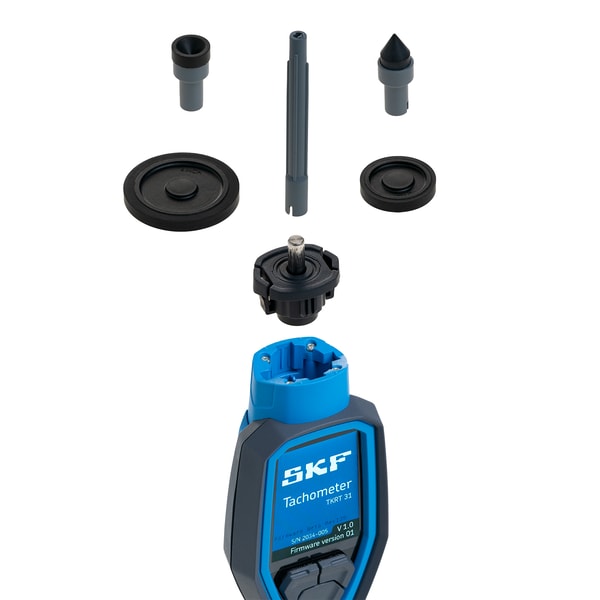Top Reasons That Every Chauffeur Demands a High-Quality Tachometer
Wiki Article
Secret Reasons Having a Tachometer Is Vital for Keeping Engine Health And Wellness and Effectiveness
In the realm of vehicle upkeep, the significance of a tachometer can not be overemphasized - tachometer. This modest yet important tool plays a pivotal function in the maintenance of an engine's health and performance. By providing real-time data on engine speed and RPM degrees, a tachometer offers indispensable understandings that straight affect the performance and durability of the engine. From protecting against over-revving to optimizing fuel usage, the applications of a tachometer are complex and essential for any type of automobile proprietor or enthusiast. So, why is this seemingly basic gadget so crucial? Allow's discover the key reasons behind its critical function in preserving engine health and wellness and effectiveness.Preventing Engine Over-Revving

To protect the engine from potential damages, it is necessary to apply procedures that stop over-revving, a technique that can bring about expensive repair services and decreased engine lifespan. Over-revving occurs when the engine's rotational speed goes beyond the optimum limit established by the supplier, triggering undue stress and anxiety on interior components such as pistons, shutoffs, and linking rods. This too much strain can cause mechanical failures, including curved valves, harmed pistons, and also catastrophic engine failing.
A rev limiter is a gadget that regulates the optimum RPM (revolutions per minute) of the engine by either reducing off gas circulation or spark to the engine when the pre-set limitation is reached. Routine upkeep checks to ensure the engine is in optimal condition can likewise assist in preventing over-revving events and extending the engine's life-span.
Optimizing Fuel Consumption
Effective fuel usage plays a vital role in making best use of the performance and sustainability of an engine. tachometer. Optimizing gas intake not just aids in reducing operational prices yet additionally decreases the ecological influence of vehicle emissions. By utilizing a tachometer to keep track of engine speed and adjust driving habits accordingly, drivers can achieve better gas performanceKeeping a constant speed and preventing unexpected accelerations and decelerations can significantly boost gas economic climate. Furthermore, proper gear selection based upon the tachometer readings ensures that the engine runs within its ideal range, bring about more efficient gas combustion.
On a regular basis keeping an eye on the tachometer can likewise help recognize any type of inefficiencies or mechanical issues that might be impacting fuel intake. A sudden rise in fuel use without a matching adjustment in driving routines could suggest an issue that requires attention.
Monitoring Engine Health
Checking engine wellness is essential for making certain optimal efficiency and durability of the car. By using a tachometer to keep track of engine speed, chauffeurs can find abnormalities that might show prospective issues with the engine. A tachometer provides real-time information on engine transformations per min (RPM), permitting drivers to identify any unusual spikes or decrease in RPM that might indicate issues such as misfires, worn-out elements, or engine overheating.
On a regular basis checking engine wellness with using a tachometer allows chauffeurs to deal with issues promptly prior to they escalate and cause substantial damages. Discovering a decrease in RPM can suggest fuel delivery problems or a clogged air filter, while an unexpected boost in RPM may aim to problems with the transmission or exhaust system. By staying cautious and receptive to changes in engine performance, chauffeurs can prevent expensive repair work and make certain the general health and performance of their car.
Increasing Engine Life Expectancy
Ensuring the long life of an engine needs attentive maintenance techniques and mindful surveillance of essential efficiency signs. Expanding an engine's life expectancy is crucial for minimizing overall car upkeep costs and preventing unanticipated break downs. A tachometer plays a substantial role in this check element by my company supplying real-time information on engine speed, enabling vehicle drivers and auto mechanics to make educated choices to stop extreme damage.
Furthermore, regular maintenance based upon tachometer readings, such as timely oil modifications and stimulate plug replacements, can considerably add to expanding the engine's durability. Overall, including a tachometer into routine engine surveillance practices is vital for protecting the engine's health and performance over the long-term.
Saving Cash on Fixes
To effectively handle automobile maintenance costs and decrease unexpected breakdowns, leveraging the insights provided by a tachometer can be crucial in conserving cash on repair services. A tachometer assists in monitoring the engine's RPM (transformations per minute), allowing chauffeurs to operate within the recommended range. By remaining within these ideal RPM levels, excessive stress on the engine can be prevented, lowering the probability of expensive repair work as a result of overworking the engine (tachometer). Furthermore, a tachometer can notify chauffeurs to potential concerns such as engine misfires or failing elements, permitting for early intervention before these issues escalate and cause a lot more comprehensive-- and expensive-- repair services.Additionally, by utilizing the data from a tachometer to practice smooth acceleration and slowdown, motorists can prolong the lifespan of their vehicle's elements, ultimately conserving money on upkeep and substitutes. On the whole, the understandings offered by a tachometer equip straight from the source drivers to make enlightened choices that can stop unneeded deterioration on the engine, causing substantial price savings in the future.
Final Thought
Finally, a tachometer plays a critical role in maintaining engine wellness and effectiveness by stopping over-revving, maximizing fuel consumption, checking engine health, prolonging engine lifespan, and conserving money on repairs. It is an essential tool for ensuring that the engine operates within secure limitations and executes at its best, ultimately adding to the long life and general efficiency of the lorry.Report this wiki page